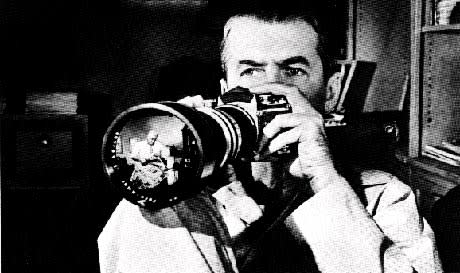No one disputes that Alfred Hitchcock was a master filmmaker; what three new additions in Universals Legacy Series (including Vertigo and Psycho) prove is the variety of filmmaking styles and approaches he not only mastered but in several cases invented and perfected. Rear Window is for many the pinnacle of several key Hitchcock-ian styles and devices: his point-of-view storytelling (the entire film is told from the perspective of Jimmy Stewarts wheelchair bound observer), his attention to sound design (shooting location sound from across a huge set to give it an appropriate distance and space) and his love for blondes (Grace Kelly here is one of his most idealized visions). The murder mystery unfolding from a single room is pretty much perfectly constructed, and Hitchcock was so meticulous in the planning of every detail that hes said that showing up to actually film is kind of anticlimactic; hes already made the film, down to the tiniest detail, in his head. On each of these new two-disc sets, an aspect of Hitchcocks world is explored, in this case sound design. Theres also an excellent original documentary (Rear Window Ethics) that explores every aspect of his vision, from the detailed to the improvised (yes, Hitchcock allowed some freedom on his film sets). Rear Window is one of the great examples of Hitchcocks idea of pure cinema, which is not, as some people posit, simply a matter of a film being successful with the sound off but rather a culmination of everything film can do that no other media can: telling the story visually but also through sound cues, lighting design, sets and casting. Rear Window is a master class in every one. Other featurettes include a conversation with screenwriter John Michael Hayes (though Hitchcock almost never took writing credit no script was absent his fingerprints), excerpts of interviews done with Hitchcock by French nouveaux vague filmmaker François Truffaut, and an episode of his TV serial Alfred Hitchcock Presents. Though each of these two-disc sets offers a mere glimpse of the complete world of Hitchcock, so too is no one film enough to capture his wide vision and new approaches he brought to nearly ever effort. Plus: commentary by historian John Fawell, production notes and photos, more.
(Universal)Rear Window Special Edition
Alfred Hitchcock

BY James KeastPublished Nov 5, 2008